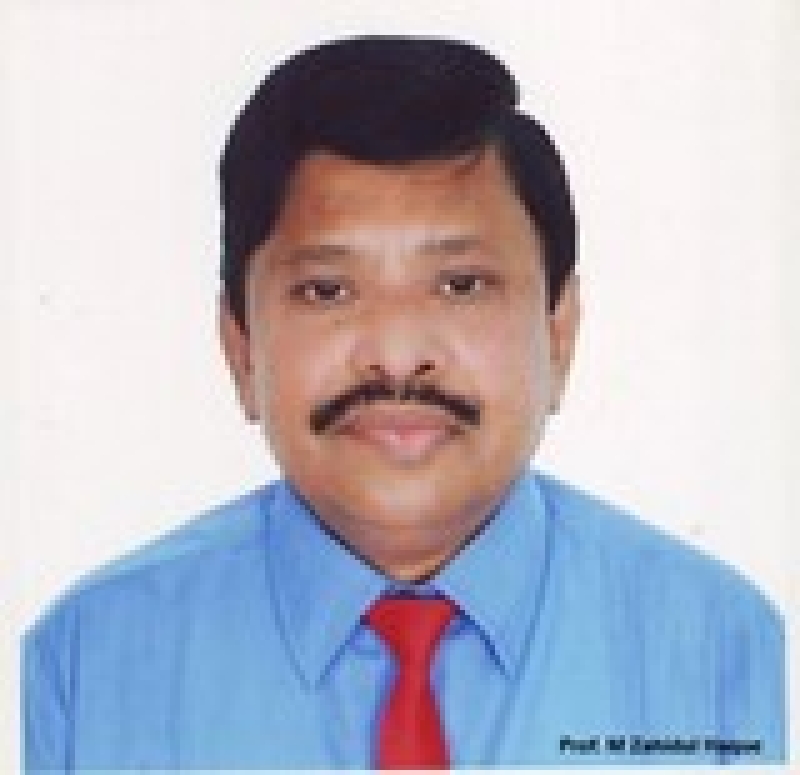- Hadi's condition 'very critical' after bullet causes 'massive brain injury' |
- DMP intensifies drive to arrest attackers of Hadi |
- Tarique terms attack on Hadi a conspiracy against democracy |
- Man held for tying, beating up youth on theft suspicion in Gazipur |
- Sajid (2) lifted after 32 hrs from deep Rajshahi well, not alive |
Misinformation and Fake News in Journalism

Prof. M Zahidul Haque
Prof. M
Zahidul Haque
In today’s digital era, the spread of misinformation and fake news has become a significant challenge for journalism. Misinformation refers to false or misleading information shared without intent to deceive, while fake news involves deliberately fabricated stories designed to mislead readers, often for political, financial, or social gain. Both undermine the credibility of journalism, distort public perception, and weaken trust in media institutions.
In the post student-led mass uprising in Bangladesh, spread of misinformation and fake news has become an increasingly troubling trend. Social media platforms have become breeding grounds for false narratives, political propaganda, and misleading information often fueling tensions between different groups of people in the society.
Some social media is flooded with fake news and information, for instance, a news image is now on scroll, “We will even stage a third World War to re-capture our power and will spare no one—”. There is no counting on how many number of times a day, important state personalities are being stripped of their portfolios and sending out of the country!
Amid growing distrust of mainstream media, many individuals turn to unverified online sources, further amplifying the spread of rumors and half-truths. The rapid circulation of such content often outpaces efforts to fact-check and correct falsehoods, leaving the public vulnerable to manipulation. This trend not only threatens political stability but also weakens democratic processes, as misinformation undermines informed decision-making and fosters polarization across the nation.
The advent of social media has played a crucial role in the rise of fake news. Some social media platforms allow users to share content rapidly, often without
verifying its authenticity. Algorithms prioritize sensational headlines, creating an environment where fabricated stories can go viral. For instance, during the 2016 U.S. presidential election, numerous fake news stories circulated widely, including a false report that Pope Francis endorsed Donald Trump, which gained significant traction online. This story misled many readers and fueled political misinformation.
During the COVID-19 pandemic, various conspiracy theories and misinformation campaigns emerged, suggesting that the virus was a ‘hoax’ or that vaccines were harmful. These theories spread rapidly on social media, causing confusion, vaccine hesitancy, and even clashes between healthcare workers and misinformed citizens. Despite efforts by the government and health officials to provide accurate information, the distrust created by these conspiracy theories led to increased resistance to public health measures.
Misinformation and fake news pose serious threats to journalism and democracy. To combat misinformation, journalists have a duty to fact-check and provide accurate, well-sourced reporting. Media organizations must adopt ethical standards to ensure they do not inadvertently spread false information.
Fact-checking platforms like PolitiFact and Snopes have become essential tools in identifying and debunking fake news stories.
It is imperative for media outlets, journalists, and consumers alike to remain vigilant, prioritize credible sources, and critically assess the information they encounter. Conspiracy theories fueled by misinformation can lead to dangerous real-world outcomes, and Bangladesh is no exception. In recent years, the country has seen the spread of false information, often on social media platforms, leading to social unrest and violence. For establishing a fair society based on democratic values and social justice, journalism has a strong role to play.
(Prof M Zahidul Haque is a former faculty of Sher-e-Bangla Agricultural University and a regular contributor to the GREENWATCH, Dhaka)

